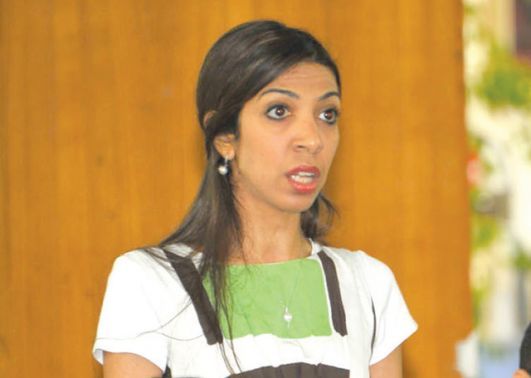1 Jul 2013 | Campaigns, Digital Freedom, Europe and Central Asia
The revelations that the United States allegedly spied on European Union diplomats marks a low in what should be a special relationship of trust between major democracies. The EU needs to remind the US that surveillance is unacceptable in the digital age.
The row was prompted by revelations published by German magazine Der Spiegel on its website this past Saturday. Relying on documents allegedly leaked by the former NSA-contractor Edward Snowden, the magazine said the NSA had surveilled EU, French, German and Italian diplomatic offices in Washington and at the UN.
Instead of reminding US authorities of the EU belief in an open and free internet, Catherine Ashton, the high representative of the EU for foreign affairs and security policy, focused on the specific press reports, calling them a “matter for concern”. The European Union needs to reiterate its well-established position that “global connectivity should not be accompanied by censorship or mass surveillance.”
But French president Francois Hollande demanded the US stop its activities “immediately.” Later, the BBC reported that Hollande threatened to derail US-EU trade pact negotiations over the bugging scandal.
Germany’s government summoned the US ambassador to explain his country’s actions. Steffen Seibert, spokeperson for Chancellor Merkel, said that Germany wants “trust restored. We will clearly say that bugging friends is unacceptable.”
French foreign minister Laurent Fabius demanded an explanation “as soon as possible” after labelling the alleged spying unacceptable.
Martin Schulz, president of the EU Parliament warned that the allegations, if true, would have a “severe impact on the relations between the EU and the US. He demanded a fuller account of the Der Spiegel reports.
Thomas Drake, a former NSA employee turned whistleblower, who was prosecuted under the US espionage act tweeted today that the alleged spying had “little to do with classic eavesdropping. Instead, it’s closer to a complete structural acquisition of data”.
Index CEO Kirsty Hughes said:
“As disagreement grows between the EU and the US over surveillance, Index on Censorship calls for the EU to take a lead in condemning mass surveillance – which the EU’s cyberstrategy already warns against. We are also calling on the US government to acknowledge that the mass surveillance of citizens’ private communications is unacceptable and a threat to both privacy and freedom of expression.”
1 Jul 2013 | Europe and Central Asia, News, Religion and Culture
The European Union Foreign Affairs Council last week released its guidelines on promoting and protecting religious freedom. The guidelines, designed to set standards for the EU’s external dealings, make, for the most part, encouraging reading, Padraig Reidy writes
The section on free expression sets out thus:
“Freedom of religion or belief and the freedom of expression are interdependent, interrelated and mutually reinforcing rights, protecting all persons — not religions or beliefs in themselves — and protecting also the right to express opinions on any or all religions and beliefs.”
The distinction made here between protecting “persons” as opposed to “religions and beliefs in themselves” is very important, boiling down to the simple notion that individuals have rights but ideologies don’t.
Further on, the guidelines suggest that the EU will recall, when appropriate, that the right to freedom of religion or belief, as enshrined in relevant international standards, does not include the right to have a religion or a belief that is free from criticism or ridicule.
As an argument against modern versions of blasphemy laws: laws which claim to “protect religious feelings”. Russia recently passed such a law, criminalising “public actions expressing clear disrespect for society and committed with the goal of offending religious feelings of the faithful”. The Organisation of Islamic Conference, meanwhile, is seeking to have “defamation of religion” recognised at United Nations level. Any EU attempt to curb this move is somewhat undermined by the fact that the OIC has copied its definition of blasphemy from Ireland’s 2009 Defamation Act.
The guidelines suggest that the EU should resist attempts to curb religious speech as long as there is not a “prima facie case that this expression constitutes hates speech”. But they do also raise the expectation that Europe should condemn any violence carried out in relation to “offensive speech”.
The European Platform on Religious Intolerance and Discrimination (EPRID) has welcomed the guidelines. In a statement, it said:
“Promoting freedom of religion or belief is therefore not only a moral or legal obligation, but also a strategic political choice. The adoption of these Guidelines today gives a strong signal that [it] is now a priority for the EU.”
1 Jul 2013 | Europe and Central Asia
 Lukashenko’s government is open for dialogue with Europe. But it will expect something in return, says Andrei Aliaksandrau
Lukashenko’s government is open for dialogue with Europe. But it will expect something in return, says Andrei Aliaksandrau
(more…)
28 Jun 2013 | Middle East and North Africa
European ministers and Gulf Cooperation Council (GCC) members will meet on Sunday in Bahrain to discuss the future of their political and economic relations from 2013-2016. Bahrain’s free speech violations in recent weeks should also be up for discussion, says Sara Yasin

Bahrain is introducing new regulations on Voice Over Internet Protocol (VoIP) applications that could mean a ban on programmes like Skype, WhatsApp, Viber, and Tango.
Minister of State for Communication Fawaz bin Mohammed Al Khalifa cited “security considerations” for the new regulations, according to Gulf News. He also said that it was part of “efforts exerted by the GCC to ensure the existence of regulations that preserve the rights of operators and that there is no abuse of communication applications”. Saudi Arabia, also a member of the GCC, blocked Viber earlier this month. The country has also threatened to ban Skype and WhatsApp after the companies refused to comply with the country’s monitoring requests.
The UK National Contact Point (NCP) for the Organisation for Economic Cooperation and Development (OECD) has announced that it will consider a case brought against a UK-based surveillance company for selling technology that was used to spy on Bahraini dissidents. Five organisations filed formal complaints against Gamma International with the OECD, arguing that the company has been in violation of the OECD guidelines by selling its technology to repressive governments. The company has claimed that it “would not supply the product identified in the complaint in a situation where it believed it would be used for the purpose of repressing civil rights”. Last year suspicious e-mails were sent to Bahraini dissidents, including London-based activist Ala’a Shehabi. The e-mails were eventually linked to Gamma International’s FinFisher Suite, which infects email accounts and electronic devices using Trojans. Privacy International, along with the Bahrain Center for Human Rights, Reporters Without Borders, Bahrain Watch, and European Center for Constitutional and Human Rights brought the complaints against the security company in February this year.

Bahraini journalist Nazeeha Saeed
Manama’s Court of Appeal this week upheld the acquittal of Sarah Al-Moosa, a policewoman charged with torturing France 24 journalist Nazeeha Saeed. Al-Moosa was acquitted October last year, after a Manama Court decided that Saeed’s evidence was “contradictory” and “not consistent” with the forensic report. Saeed presented three medical reports confirming her account of torture while in police custody, after her arrest in May 2011. She was detained while covering a crackdown on pro-democracy protests.
The jail sentence of human rights defender Zainab Alkhawaja has been extended by two months for allegedly assaulting two policewomen. Alkhawaja has been in jail since 27 February this year, serving on charges of “taking part in illegal gathering, unlawful entry to Pearl Roundabout, and insulting a police officer.” The activist’s sentence means that she will be held until February next year. Alkhawaja has been active in documenting and speaking out against human rights violations since the start of unrest in the country in February 2011.

Human rights defender Mohammad Al-Maskati
The head of Bahrain Youth Society for Human Rights (BYSHR), Mohamed Al-Maskati, is currently facing charges for “participation in illegal protest.” The activist appeared before Manama’s Lower Criminal Court on 19 June, but the hearing was then postponed until July. If convicted, Al-Maskati faces up to six months jail time. The Bahrain Center for Human Rights (BCHR) believes that Al-Maskati has been targeted for condemning the regime’s human rights violations at the Human Rights Council in Geneva last September. The activist reportedly received threatening phone calls for his participation, and was targeted by pro-government newspapers following his return. Index has previously condemned Bahrain’s treatment of human rights defenders, including BCHR head Nabeel Rajab, who is serving a two-year jail sentence for “organising illegal gatherings.”
Sara Yasin is an Editorial Assistant at Index. She tweets from @missyasin

 Lukashenko’s government is open for dialogue with Europe. But it will expect something in return, says Andrei Aliaksandrau
Lukashenko’s government is open for dialogue with Europe. But it will expect something in return, says Andrei Aliaksandrau

